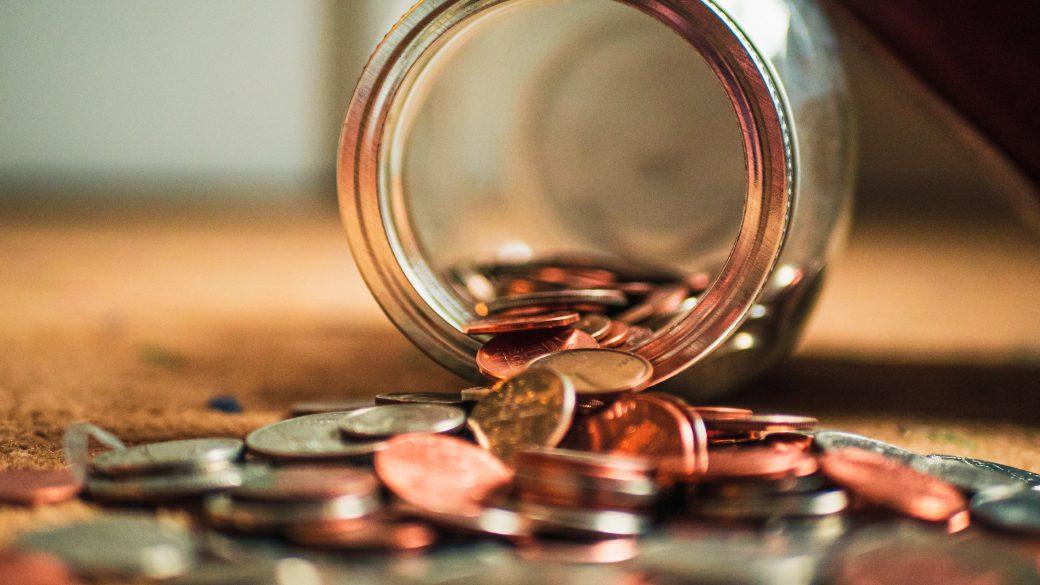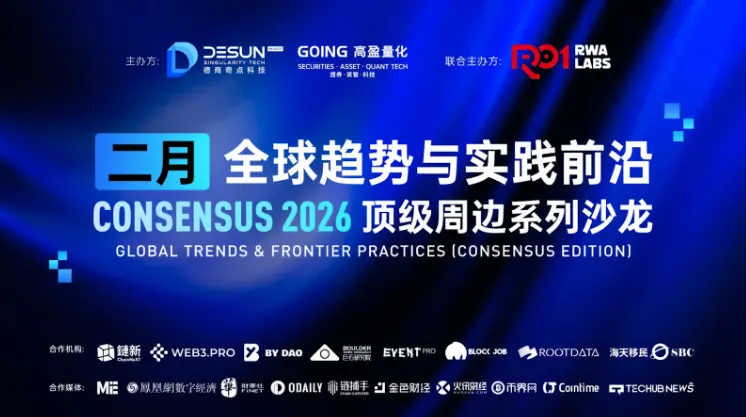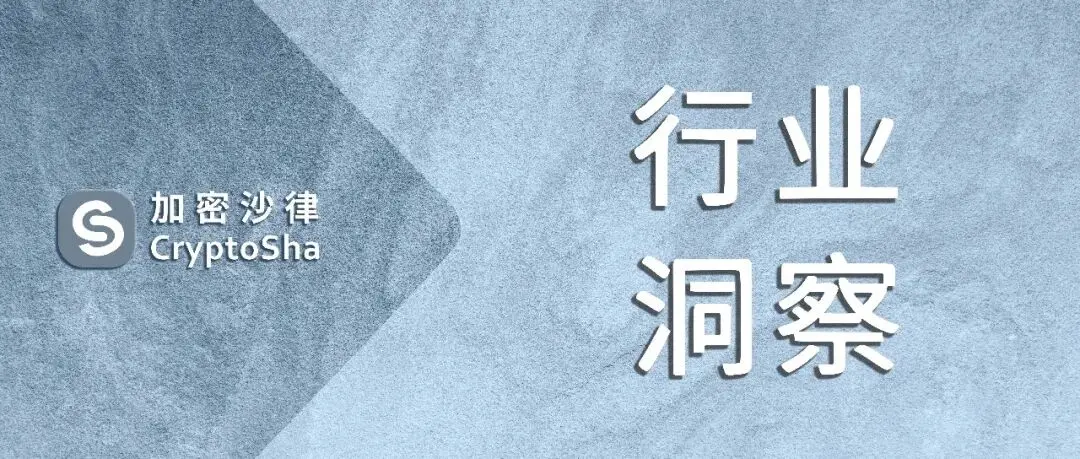Bangkok Web3 Travelogue: A Digital Nomad Paradise, Yet Full of Mundanity and Division
Written by: 0xmin/Runchen, Deep Tide TechFlow
The first chapter of this article is written by Runchen, thanks to him!
Bangkok, a city that inspires endless imagination yet is within reach.
With the globalization wave of Web3, more and more industry practitioners are setting their sights overseas, seeking opportunities for expansion abroad.
In this context, Bangkok has become a "not bad" choice; it has a lower cost of living than Singapore and is more inclusive than the domestic environment. At the same time, Bangkok is also a "sin city," filled with various urban legends: the backyard of gray industry tycoons, the Thai government's crackdown on Chinese people, kidney trafficking…
What is the real Bangkok like? Is coming here a chance to leap into the vast sea or are we merely fish on a butcher's block? To use Bangkok as a foothold for building Web3, we must first understand the real Bangkok and Thailand.
Understanding Thailand Through History
Thailand, a magical country.
Thailand has a population of about 70 million, of which 14% are of Chinese descent (mainly from Chaoshan) and 2.3% are Malay. If we consider the Lao ethnic group (as Laos was once part of the Siam Empire), they account for 33.7% of Thailand's population. It is no exaggeration to say that Thailand is a country where populations merge and cultures intertwine, and Bangkok is the epitome of this.
The tourism-driven economic system has given rise to Bangkok's unique urban structure and Thailand's distinctive political and economic form.
On one hand, with the help of foreign investment, Bangkok has built a prosperous international metropolis, with various high-end shopping malls and luxury apartments springing up. At the same time, cultures from various countries (especially Japanese and Chinese cultures) permeate every aspect of this city; for instance, aside from the lack of Japanese language speakers, the Sukhumvit/Thonglor area is even more "Japanese" than Japan itself.
"Tolerance," or even "over-tolerance," is Thailand's greatest characteristic. To understand Thailand's present, one must look at its almost extraordinary modern history.
Compared to other Southeast Asian countries, Thailand has its uniqueness: it is the only country that has never been colonized and transitioned directly from slavery to a modern state.
In 1868, the histories of three countries were completely changed:
The Japanese Emperor changed the era name to Meiji, opening the door to the "New World," and Japan officially began its modernization;
Abraham Lincoln's successful victory in the Civil War led to the formal constitutional amendment in 1868, granting full citizenship rights to Black Americans;
King Rama V of Thailand was crowned, known as King Chulalongkorn, initiating Thailand's modernization.
During Rama V's reign, the Chulalongkorn reforms transformed Thailand into a modern state through diplomatic, domestic, and military reforms.
In diplomacy, Chulalongkorn achieved peace by ceding territory and using diplomatic skills to navigate between the British and French powers; domestically, Thailand abolished a 600-year-old system of slavery, officially established a centralized government, and set up basic schools while sending a large number of students to Europe for education.
After ruling for 42 years, King Chulalongkorn passed away, and his son, Rama VI, established Chulalongkorn University (Thailand's best higher education institution) and established a constitutional monarchy in Thailand.
Although Thailand's constitutional monarchy and democratic politics were initially tools for superficial peace, it is undeniable that Thailand firmly seized historical opportunities, transforming from a slave state into a modern "democratic" nation.
It is worth mentioning that throughout Southeast Asia, Thailand is the only country in modern times that has not been colonized. It adeptly utilized balance to become a strategic buffer zone between British and French interests in the Indochinese Peninsula, embodying "pragmatism."
During World War II, Thailand allied with Japan and declared war on the UK and the US when the Pacific War broke out; after Japan's defeat, Thailand declared its previous declaration of war against the UK and the US invalid, which was recognized by the US, allowing Thailand to avoid the fate of a defeated nation and become the only close ally of the US in the Indochinese Peninsula.
Thailand's modernization has almost been bloodless, partly because the Thai king "is open-minded," and partly because Thailand has not ventured far into democratic politics, creating a unique and even contradictory Thailand.
On one hand, the Thai king has strong control over the country, overseeing the military, politics, and the economy; on the other hand, Thailand has not closed itself off or fallen into leftist nationalism. Instead, Thailand has opened its doors wide, with everything oriented towards economic interests.
On one hand, Thailand is a Buddhist country where people believe in rebirth; on the other hand, it is extremely secular, allowing monks to eat meat and marry.
On one hand, various government departments in Thailand suffer from systemic corruption, with a significant wealth gap in society; on the other hand, the country appears "orderly," and citizens are accustomed to it, enjoying a relatively high happiness index.
This is Thailand, where every moment feels contradictory and fragmented:
A country where sex work is legally prohibited yet is famous worldwide for its red-light districts;
A country where the best higher education institution and a well-known red-light district are merely one subway station apart;
A country where anyone, regardless of age or appearance, can sell their body for profit—this is the real Thailand.
The Current State of Web 3 in Thailand
Crypto is a deconstructive force; in a place of contradictions and chaos, it is the stage—yes, we are talking about Thailand.
There has long been a legend in the crypto world about the fierce trading of cryptocurrencies by Koreans, and the Thai people are no less enthusiastic.
In June 2022, after a significant drop in cryptocurrency prices, a Thai man robbed a gold shop in Bangkok of approximately 2 million baht worth of gold necklaces. After being arrested, he stated that he had committed the crime due to severe losses from cryptocurrency.

In 2022, a report showed that about 20% of Thais aged 16-64 owned cryptocurrencies, ranking first.

However, it is not easy for outsiders to enter; like the internet, the Thai crypto market has strong local characteristics and "forces."
The Thai market is still dominated by the Thai language, with most people's social platform being Facebook. Among the younger demographic, LINE and Instagram are more mainstream, similar to Taiwan.
As for Thai crypto projects, what comes to mind first?
Before 2020, I would think of OmiseGo, Everex, Velo.
These three projects are blockchain cross-border payment initiatives launched by Thai fintech companies, which align well with Thailand's characteristics. Thailand is a major tourist destination, and many neighboring countries like Laos and Cambodia send workers to Thailand, creating a significant demand for remittances. Additionally, Southeast Asia's overall financial infrastructure is underdeveloped, which "theoretically" provides opportunities for blockchain and crypto. Why "theoretically"? Because later, these three projects all "performed poorly": OMG transformed into an Ethereum Layer 2, now known as Boba Network. Velo, supported by Thailand's largest commercial group, Charoen Pokphand Group, announced in 2021 the acquisition of the business operations of the American crypto giant Stellar, but its secondary performance was average.
After 2020, Thailand's crypto star projects belong to DeFi and GameFi, such as Band Protocol, Alpha Labs, GuildFi, or collectively known as the "Band Gang."
At the capital level, Thailand is still dominated by traditional large banks and conglomerates, such as SCB (Siam Commercial Bank) and Kasikorn Bank.
SCB's fintech investment division, SCB 10X, is almost equivalent to a crypto fund, simultaneously investing and incubating, having invested in over 40 projects, including Fireblocks, Nansen, Axelar, Sandbox, etc.
In October 2022, SCB 10X established a 1,000 square meter Web3 co-working space called DistrictX in Bangkok, hosting crypto companies like Nansen, Tokenunlocks, and Fireblocks. DistrictX also serves as an incubator, with SCB 10X CEO Mukaya (Tai) Panich stating that SCB 10X plans to incubate six Web3 startups in the first half of 2023.

Kasikorn Bank's tech subsidiary, KBTG, announced in 2021 the launch of a DeFi-focused incubator called KX and an NFT art platform called Coral, allowing users to purchase NFT art collections directly using Thai baht or US dollars.
In terms of trading, by asking Thai people around me, I found that many also use Binance. However, there is a large local force in Thailand, the most well-known being the licensed exchange BitKub, which allows deposits and withdrawals in Thai baht and occupies 95% of the local market share. In November 2021, BitKub sold a majority (51%) stake to SCB.
Overall, to develop in the Bangkok market, it is best to establish connections or collaborations with local giants like SCB or Charoen Pokphand Group to achieve greater efficiency. At the end of January, some members of the Ethereum Foundation visited Bangkok and attended a welcome dinner hosted by SCB 10X.

Welcome dinner for the Ethereum Foundation
A Paradise for Digital Nomads
When we talk about digital nomads, Thailand is an unavoidable destination.
In 2021, UK ClubMed listed the 15 countries most suitable for digital nomads based on climate, cost of living, internet speed, and the number of offline activities, with Thailand ranking first, while Singapore ranked third, which seems a bit absurd.

Recently, after returning to Singapore from Bangkok, I truly understood the appeal of Thailand.
At Jewel Changi, I had a plate of poorly cooked and small shrimp fried rice for 25 SGD (125 RMB), and a taxi ride cost 40 SGD (200 RMB). In contrast, Bangkok is a paradise for us proletarians.
A large plate of seafood fried rice filled with crab meat costs 120 THB (24 RMB), and for 300 THB, you can enjoy a good meal at a Michelin restaurant. High-end Japanese restaurants are no longer exclusive to the wealthy, and massage shops are everywhere. A one-hour massage at a roadside shop costs only 250 THB (50 RMB), and the techniques are quite good… If you are in Chiang Mai, prices are even cheaper.
Additionally, Thailand is exceptionally advanced in the medical field, with its medical tourism scale consistently ranking first in the world. Its traditional strengths include plastic surgery, gender reassignment surgery, dental health, and IVF, for example, a large number of Australians come to Thailand for dental repairs and beauty treatments. On Xiaohongshu, you can also find many posts from people in China traveling to Thailand for medical beauty.
Just as many Westerners stay long-term in Thailand to live a "superior" life, Chinese people in Thailand also engage in a form of cross-border arbitrage, enjoying "high-end living" at a low cost, but this also poses problems.
Thailand's excessive secularism makes it easy for those who stay here long-term without external constraints to lead a life of indulgence and excess, and even while strolling in Sukhumvit at night, one might occasionally inhale secondhand marijuana smoke.
Moreover, Thailand has "systemic corruption," where money can solve most problems. The low barriers to entry and relatively free environment also lead to a mix of people. For instance, while I was in Bangkok, I was advised to avoid areas where Chinese people gather and to limit interactions with local Chinese.
In summary, Thailand has its beautiful side, but it may not be suitable for everyone. As mentioned at the beginning of the article, this is an extremely "secular" and "divided" country; tourism and long-term residency are entirely different situations and mindsets, and the latter does have certain thresholds.
First, there are visa issues. A tourist visa (up to 90 days) combined with multiple visa-on-arrival options can allow you to stay in Thailand for about six months. However, if you want to stay long-term for over a year, you need to obtain a long-term visa. Previously, Thai authorities cracked down on some local Chinese influences and tightened work visa regulations for Chinese nationals.
To reside in Thailand long-term, many people around me choose to apply for an "elite visa," which requires a one-time payment of 120,000 RMB for a 5-year visa. Some friends opt to pursue a master's degree at a local university in Bangkok (in English) to obtain a student visa for a year and a half.
Whether in Bangkok or Chiang Mai, a considerable number of Web3 practitioners have gathered, many of whom have migrated from Singapore, Hong Kong, or Shanghai, including executives/founders of projects, VC investment managers and partners, OTC practitioners, and even exchanges preparing to use Bangkok as a base for significant personnel migration…
The downside is that Thailand's education leans towards the humanities, and there is a severe lack of developer communities and resources. Additionally, there are many distractions here, making it easy to lose oneself in the nightlife.
While dining with a group of friends from the Web3 industry in Bangkok, someone mentioned that when he returned to Bangkok again, upon landing, he felt a sense of homecoming, and at that moment, he realized that Bangkok was home.



























